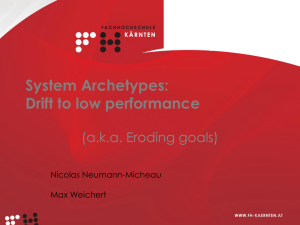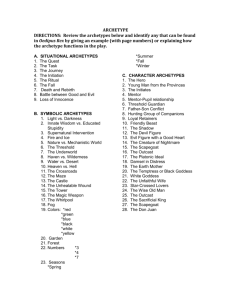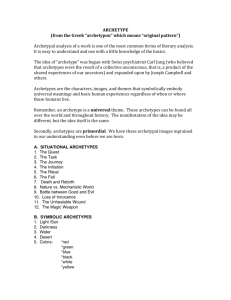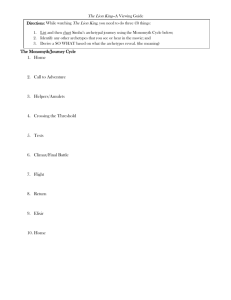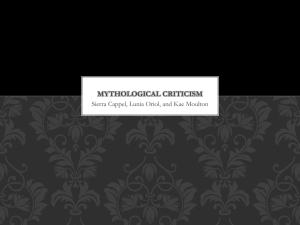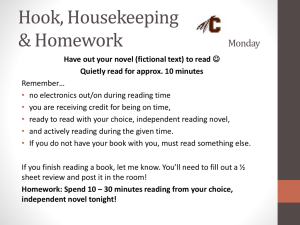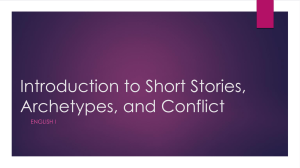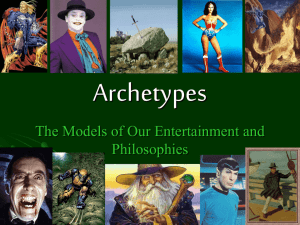Name___________________________ January 2014 10A
advertisement
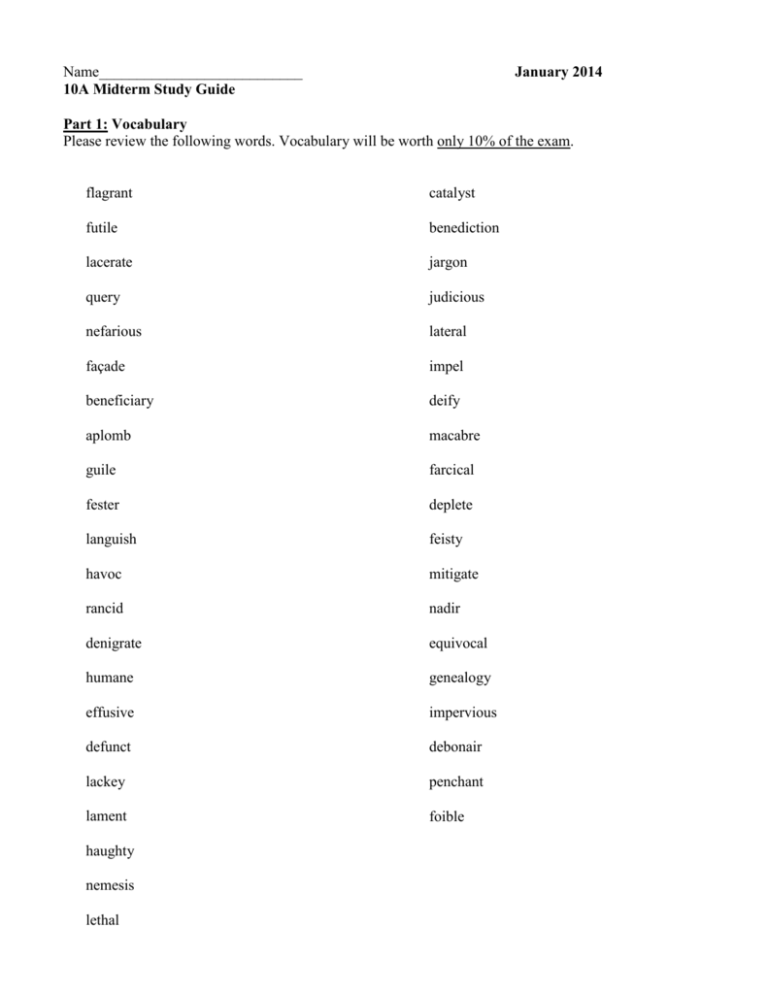
Name___________________________ 10A Midterm Study Guide January 2014 Part 1: Vocabulary Please review the following words. Vocabulary will be worth only 10% of the exam. flagrant catalyst futile benediction lacerate jargon query judicious nefarious lateral façade impel beneficiary deify aplomb macabre guile farcical fester deplete languish feisty havoc mitigate rancid nadir denigrate equivocal humane genealogy effusive impervious defunct debonair lackey penchant lament foible haughty nemesis lethal Part 2- Archetypes: Please review the archetype and hero’s journey handouts. In this section of the exam, you will be given 5-10 archetypes and asked to identify examples in stories/films we have read this year. Story/Film List: Night by Elie Wiesel The Curious Incident of a Dog in the Night-time by Mark Haddon The Alchemist by Paulo Coelho Temple Grandin (2010) Horse Boy (2009) To prepare, fill out the chart below. Archetypes Transformation Wise Mentor A descent into the “underworld” Naïve wanderer Quest with many tasks Use of magical objects Omens Temptation Trickster or deceitful figure Kindly old lady/caring mother figure Examples Part 3: Quote Identification In this section, you will be asked to identify the text, author, and character in a given passage. Then, you will explain the significance of the passage to the overall theme of the story. Prepare by thoroughly completing the chart below. Text Night The Curious Incident of a Dog in the Night-time The Alchemist Author Plot Characters Themes Temple Grandin Horse Boy Part 4: Reading and Response In this section, you will be given non-fiction to read and notate with care. You will respond to comprehension and short answer questions on this reading. This reading will connect thematically to other texts we have read or watched this year, and you will need to be able to make connections to these texts. To prepare, please review how the course Essential Questions relate to the texts we have studied this semester. Essential Questions: What role does the human spirit play when people experience horrific circumstances? What can we learn from the mistakes of the past? What is our responsibility today? What influences one’s personal identity? To what degree are family, culture, gender, and relationships influential in shaping identity? To what extent does “normal” society allow/not allow an individual to speak the truth? To what extent does the text follow the classic journey tale format?
